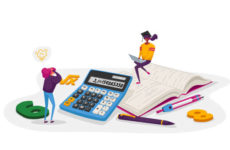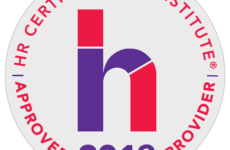It is important to start preparing for competitive exams long before the X-day. However, random studying activities hardly will get your ready enough. So, you need a plan, and this plan should be crafted based on professional advice. We’ve consulted Brian, Master’s and Ph.D. holder, experienced writer from a reliable academic paper writing service which provides students with custom-written research papers. First, he advises to:
“Before preparing, be sure to answer yourself these three questions.
- What do I need from this exam: pass and forget, or do I want to remember what I’ve learnt firmly and for a long time?
- What result is desirable for me and what is acceptable?
- How big is the difference between an acceptable result and my knowledge?”
We’ve took a liberty to elaborate on these questions:
- Question #1. The answer to this question will determine your further tactics. If you are preparing to take mathematics, and are going to enroll in a music school – this is one situation. And if you are planning to enroll in a journalism program and are preparing for an exam in literature, this is completely different.
- Question #2. Very often, the lack of awareness of this difference leads to unnecessary stress. Agree (and at the same time explain to parents) that it is impossible to know all the sciences in the top five. If you are a future violinist and are preparing for an exam in mathematics, perhaps less than average point might be an acceptable result for you. This does not mean that you do not need to learn math. But if the preparation for this exam brings you to exhaustion and stress, and there is no time left for violin lessons, it is better to choose an average result.
- Question #3. From the answer to this question will depend on the time that must be allocated to training. Just keep in mind that the preparation for the exam in your favorite literature will be perceived rather as a rest, and the unloved mathematics may require more time and effort.
A Few Months Before the Exam
To understand the basics of successful preparation, let’s look at the device of our memory. After reading the clear text, we can immediately retell only 70% of the information from it, after a few hours only 50% of the read will remain in memory, in a day – 20%. This 20% will be the information you really understand.
Memorization Techniques
Any knowledge is absorbed more easily if we can feel an interest in it, try to “live” the problem. Collect different points of view on the same topic, formulate your own. The two-textbook method will be effective. Take the books of two authors and compare how and what different biologists write about pistils and stamens.
Activate your own memory. Before you start the repetition of the topic, try to remember everything that you know about it. Now read the tutorial and analyze what you remembered correctly, what you confused, what you forgot. Now you will learn the material much faster because you cheered up your own memory.
To once again trick the memory – repeat. But do it at those very moments when it gets rid of the first 30% of the read, in a few hours – when another 50% would disappear, and start the next day of preparation with one more repetition of the past.
4 Days Before the Exam
This stage of preparation is the most crucial. Start by reading exam tickets or study topics. You can immediately determine what you know, what you know well and what you hear for the first time. Your success will largely depend on how well you distribute your strength and time in these few days.
It would be wrong to divide 40 questions into 4 days of preparation. For the exam day, the first 20 questions will be forgotten. In addition, your schedule may be disturbed by a sudden headache or other force majeure.
Highlight the most fundamental questions from the list. Start training with them. In these topics, it is important to understand the essence. Therefore, first, understand the causes of the First World War, and only then learn questions about its individual battles and other events.
Train your ability to take tests. Repeat with their help material. Limit yourself in time and try to respond to the test with the help of intuition. So you will train your ability to give an answer as quickly as possible.




